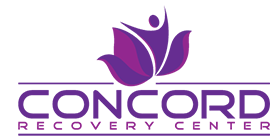If you are a recovery veteran, then you will likely understand that you must actively work on your recovery in order to retain it. If you do not work on your recovery, relapse becomes much more likely. ‘Working on your recovery’ may seem like a rather ambiguous phrase, and in this blog article, we aim to give you actionable advice that will bring this phrase to life. Working on your recovery typically involves a combination of internal work whilst supplementing internal work with fun, spiritual and healthy activities.
Many people equate recovery with building blocks. If you keep building, your structure will increase in size and strength; however, if you stop attending to your recovery, this structure will wither and begin to collapse. This is generally when relapse occurs, and you will need to start your recovery off from scratch.
Above all, you need to realize that recovery is an ongoing project that’s never truly ‘done’ or completed. Since your recovery is ongoing, it’s important to be able to work on your recovery in ways that are fun and serve to enrich your existence. This will mean you do not view your recovery as a chore. You will begin to look forward to working on your recovery rather than seeing it as a burden that holds you back in life. Neglecting your recovery is tantamount to embracing relapse. Whether you have been in recovery for twenty years or just six months, we aim to offer up actionable advice to help you work on your recovery so you can hold back the omnipotent threat that’s known as relapse.
#1. Mindfulness
It’s highly likely you’ve heard of mindfulness. The very inclusion of mindfulness in this article is obvious and may cause you to roll your eyes; however, have you really given mindfulness a try? If not, then you are probably missing out on one of the easiest ways to strengthen your recovery. Mindfulness typically means mindfulness of the breath. Focusing on the breath allows you to focus on the present moment so your mind does not wander off into random thoughts that might not be self-serving. This art dates back to ancient India. Many forms of holistic therapies now make use of mindfulness. This includes many forms of medication and yoga.
Because mindfulness allows you to analyze and moderate your mood, it is thus perfect for people in recovery who must battle with cravings and negative emotions that typically fuel the relapse cycle. Mindfulness allows you to keep your emotions in check before a relapse scenario is allowed to arise. Mindfulness is very simple to implement. All you must do is relax in a quiet place and focus on your breath. You must bring your focus back to your breath as your mind begins to wander off in many different directions. We highly recommend you join a local mindfulness group. You may be able to access a recovery-based mindfulness program.
We also recommend you download a mindfulness app from the Google Play Store or Apple App Store. Many of these apps offer guided instructions that allow you to practice mindfulness correctly.
#2. Keep in touch with people who are also in recovery
It’s also a good idea to surround yourself with people who are also working on their recovery. The fellowship offered by mutual support groups is perhaps the easiest way to tap into a recovery network. Your peers in recovery offer support and they also know what you are going through.
AA and NA meetings tend to take on a rather serious mood. You may choose to attend an alumni program instead. These programs allow you to connect with your peers in a more relaxed and social atmosphere. You will be able to relax without the need to explain your sobriety to people who are unlikely to understand.
#3. Work on your mental state
The vast majority of people who live in recovery will also experience mental health problems such as anxiety and depression. Thus, working to improve your mental state is tantamount to working on your recovery.
Popular ways to work on your mental health include attending therapy sessions and engaging in activities that you enjoy. Physical exercise is a proven way to improve your mental health for the better, so try to engage in sports and other forms of physically demanding activities as much as possible.
Conclusion
Working on your recovery is no easy task, and you need to make sufficient plans to ensure you do actually commit to tasks that help you sustain your recovery.
It’s important to not allow the above to overwhelm you. Instead, make achievable goals that are based on sensible ambitions. Then work hard to allow you to achieve these goals. Achieving these goals will give you the motivation and belief that you can go on to achieve yet more ambitious goals you hitherto thought were not possible.
Take baby steps and make ensure you make manageable goals, at least initially. There is a huge international community for people living in recovery, and it’s important to access that network in order to strengthen your recovery. Don’t tackle recovery alone.
In the age of the Internet, there really is no reason for not seeking out the help of others in achieving your recovery goals. Above all, it’s important to have confidence in yourself and for you to tackle activities that test you and thus allow you to grow.
Source Credit: rehab4addiction https://www.rehab4addiction.co.uk/blog/how-to-reinvigorate-your-recovery

